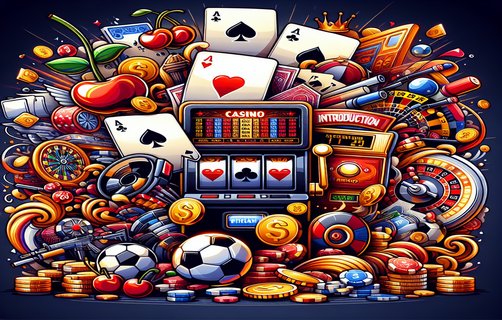The Dynamics of Tabletop Strategy: An In-Depth Analysis of Game Mechanics
टेबलटॉप रणनीति का गहन विश्लेषण: खेल मैकेनिक्स की गहराई

Tabletop games have captured the imagination of players for decades, serving not just as a source of entertainment but also a fertile ground for strategic thinking and social interaction. This analysis focuses on several core components that define the gameplay: board control, game phase triggers, random outcome effects, counters, fixed boards, and the influence of roles like 'chieftain.'
**Board Control:** At the heart of any tabletop game lies the concept of board control. Players must navigate spatial and strategic elements to dominate the game board, leveraging positioning to dictate the game's tempo. The nuances of board control can shift dramatically based on the interactions between players, presenting a dynamic challenge that often dictates the outcomes.
**Game Phase Triggers:** Different phases within a game often dictate varying actions players can take. Understanding these triggers—such as when to draw cards, initiate combat, or activate abilities—significantly impacts decision-making. Each phase creates opportunities and challenges that players must navigate, and mastering them can be the key to victory.
**Random Outcome Effects:** The role of chance cannot be understated in tabletop games. Dice rolls, shuffles, and other random outcomes introduce an element of uncertainty that keeps players engaged. The randomness can swing the balance in favor of the underdog or add excitement by providing unexpected twists, compelling players to adapt their strategies on the fly.
**Counters:** Players often employ counters to negate or mitigate the effects of opponents' actions. Recognizing when to deploy counters effectively can turn the tide of the game. This interplay between offensive and defensive strategies deepens the tactical layer of gameplay.
**Fixed Boards:** While many games thrive on adaptability and changing landscapes, the presence of fixed boards can streamline the gameplay experience. Fixed boards limit variability but can deepen strategic thinking, as players must optimize their strategies within set parameters.
**Chieftain Role:** The concept of a 'chieftain' or leader role adds an additional layer of complexity to player dynamics. Chieftains can influence decisions, facilitate negotiations, and affect the morale of other players, making their role crucial to team-based strategies. This role can also create conflict, adding rich narrative elements to the gameplay.
In summary, analyzing these components reveals the intricate landscape of tabletop gameplay, where strategy, chance, and social interaction intertwine, creating a nuanced and engaging player experience.
टेबलटॉप खेलों ने दशकों से खिलाड़ियों की कल्पना को पकड़ रखा है, केवल मनोरंजन का स्रोत नहीं बल्कि रणनीतिक सोच और सामाजिक अंतरक्रियाओं के लिए एक उपजाऊ भूमि भी। यह विश्लेषण उन कई केंद्रीय तत्वों पर ध्यान केंद्रित करता है जो गेमप्ले को परिभाषित करते हैं: बोर्ड नियंत्रण, खेल चरण ट्रिगर्स, यादृच्छिक परिणाम प्रभाव, काउंटर, निश्चित बोर्ड, और 'मुखिया' जैसी भूमिकाओं का प्रभाव।

बोर्ड नियंत्रण: किसी भी टेबलटॉप खेल के दिल में बोर्ड नियंत्रण की अवधारणा निहित है। खिलाड़ी खेल बोर्ड पर प्रभुत्व स्थापित करने के लिए स्थान और रणनीतिक तत्वों को नेविगेट करना चाहिए, खेल की गति को निर्धारित करने के लिए स्थिति का लाभ उठाना चाहिए। बोर्ड नियंत्रण की बारीकियाँ खिलाड़ियों के बीच अंतःक्रियाओं के आधार पर नाटकीय रूप से बदल सकती हैं, जो अक्सर परिणामों को निर्धारित करती है।
खेल चरण ट्रिगर्स: खेल के भीतर विभिन्न चरण अक्सर खिलाड़ियों द्वारा उठाए जा सकने वाले विभिन्न क्रियाओं का निर्धारण करते हैं। ये ट्रिगर्स समझना—जैसे कि कब कार्ड खींचना, लड़ाई में भाग लेना, या क्षमताओं को सक्रिय करना—निर्णय लेने पर महत्वपूर्ण प्रभाव डालता है। हर चरण अवसर और चुनौतियाँ पैदा करता है जिनसे खिलाड़ियों को निपटने की आवश्यकता होती है, और इन्हें सीखना जीत की कुंजी हो सकता है।
यादृच्छिक परिणाम प्रभाव: टेबलटॉप खेलों में मौके की भूमिका को कम नहीं आंका जा सकता। डाइस रोल, शफल्स, और अन्य यादृच्छिक परिणाम एक निश्चित अनिश्चितता का तत्त्व पेश करते हैं जो खिलाड़ियों को संलग्न रखता है। यादृच्छिकता के कारण अधोगति, ऊर्जावान मोड़ और बाधाएँ पैदा हो सकती हैं, खिलाड़ियों को फ्लाई पर अपनी रणनीतियों को अनुकूलित करने के लिए मजबूर करती हैं।
काउंटर: खिलाड़ी अक्सर प्रतिकूलताओं के कार्यों के प्रभावों को नकारने या कम करने के लिए काउंटर का उपयोग करते हैं। कब काउंटर को प्रभावी ढंग से लागू करना है, उसे पहचानना खेल का तरणिदान बदल सकता है। यह आक्रमक और रक्षात्मक रणनीतियों के बीच अंतःक्रिया खेल की रणनीतिक परत को गहरा करती है।
स्थिर बोर्ड: जबकि कई खेल लचीलापन और बदलते परिदृश्यों पर जीवित रहते हैं, निश्चित बोर्डों की उपस्थिति खेल अनुभव को सरल बना सकती है। निश्चित बोर्ड परिवर्तनशीलता को सीमित करते हैं लेकिन खिलाड़ी के विचारशील रणनीति को गहरा कर सकते हैं, क्योंकि खिलाड़ियों को निर्धारित मानदंडों के भीतर अपनी रणनीतियों का अनुकूलन करना चाहिए।
मुखिया भूमिका: 'मुखिया' या नेता की भूमिका टीम आधारित रणनीतियों के लिए एक अतिरिक्त जटिलता की परत जोड़ती है। मुखिया निर्णयों को प्रभावित कर सकते हैं, बातचीत को सुगम बना सकते हैं, और अन्य खिलाड़ियों के मनोबल को प्रभावित कर सकते हैं, जिससे उनकी भूमिका टीम-आधारित रणनीतियों के लिए महत्वपूर्ण हो जाती है। यह भूमिका संघर्ष भी पैदा कर सकती है, खेल के खेल में समृद्ध कथात्मक तत्व जोड़ती है।
संक्षेप में, इन तत्वों का विश्लेषण करने से यह स्पष्ट होता है कि टेबलटॉप गेमप्ले का आनंददायक अनुभव रणनीति, मौका और सामाजिक अंतःक्रियाओं को एक साथ लाता है, जो एक जटिल और आकर्षक खिलाड़ी अनुभव का निर्माण करता है।

comments
TacticalGamer101
This analysis really captures the essence of tabletop strategy! I never thought about the impact of fixed boards in such depth.
RandomRollMaster
Love how you broke down the random outcome effects. It's always a rollercoaster ride when the dice are on the table!
ChieftainFan99
The section on the chieftain role was absolutely enlightening! It emphasizes how important leadership can be in a game.
StrategistAtHeart
Fantastic insights on board control! It's amazing how positioning can literally turn the tides of the game.
CounterPlayExpert
Really enjoyed this article. Understanding counters can make all the difference in competitive play!
GamePhaseNerd
I appreciate how you highlighted game phase triggers. They really are the backbone of well-thought-out gameplay.